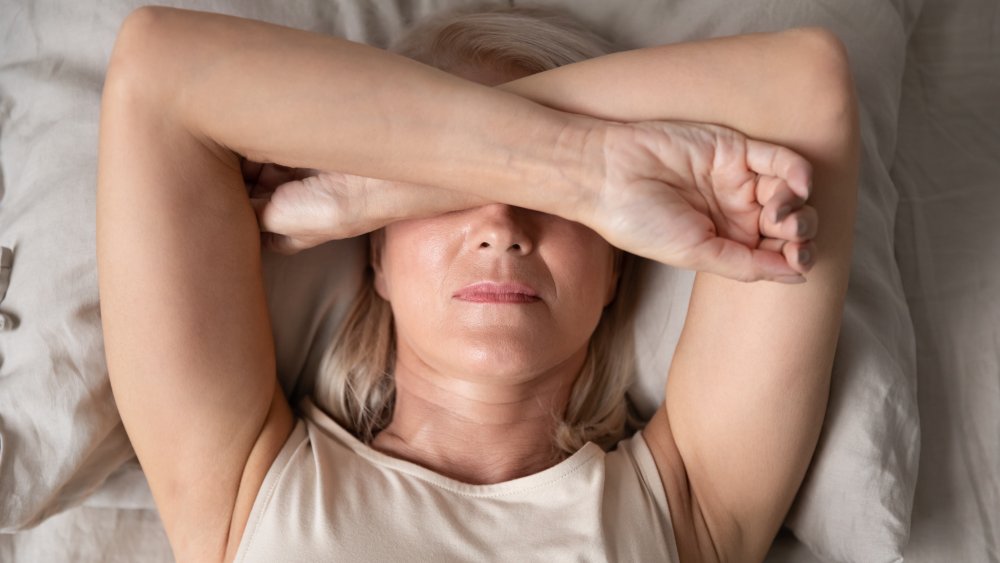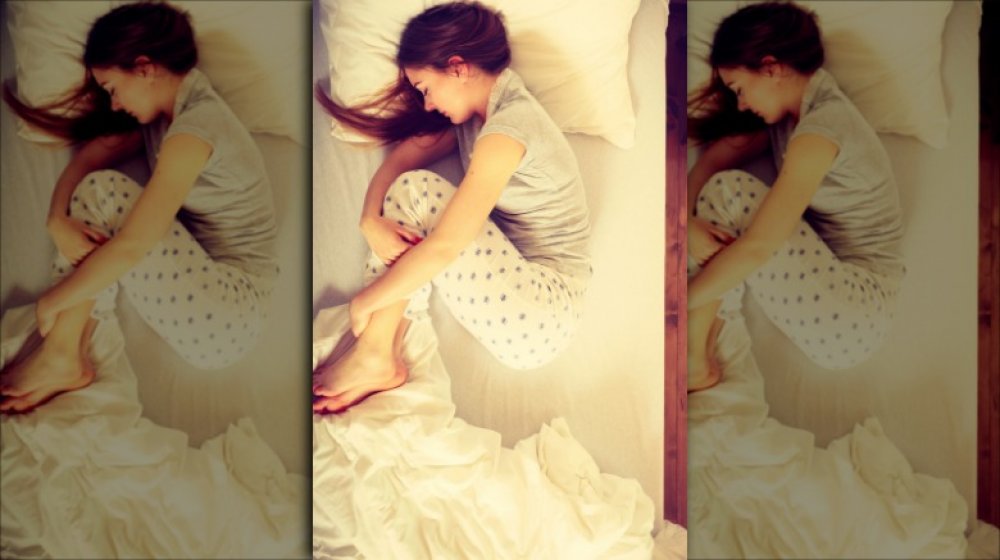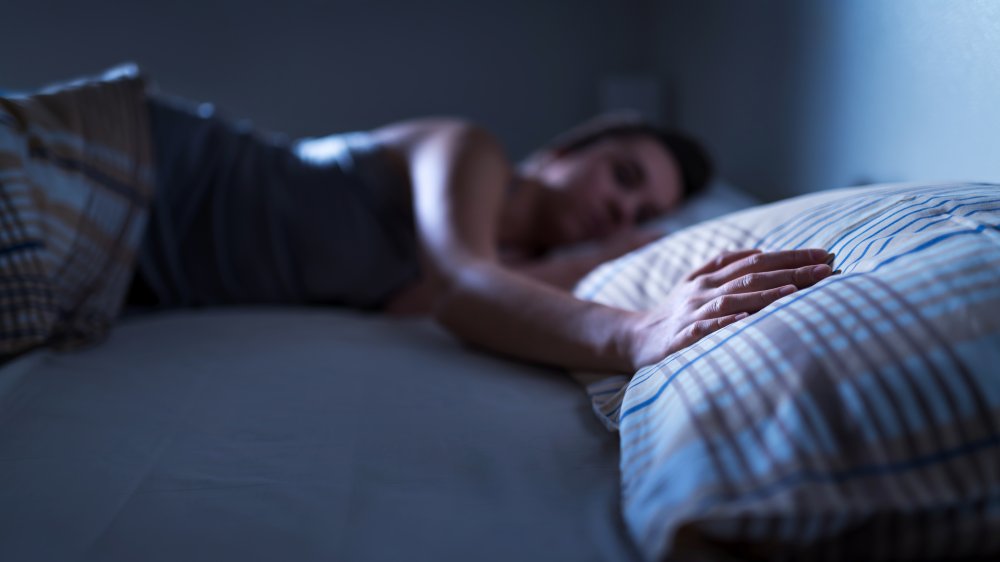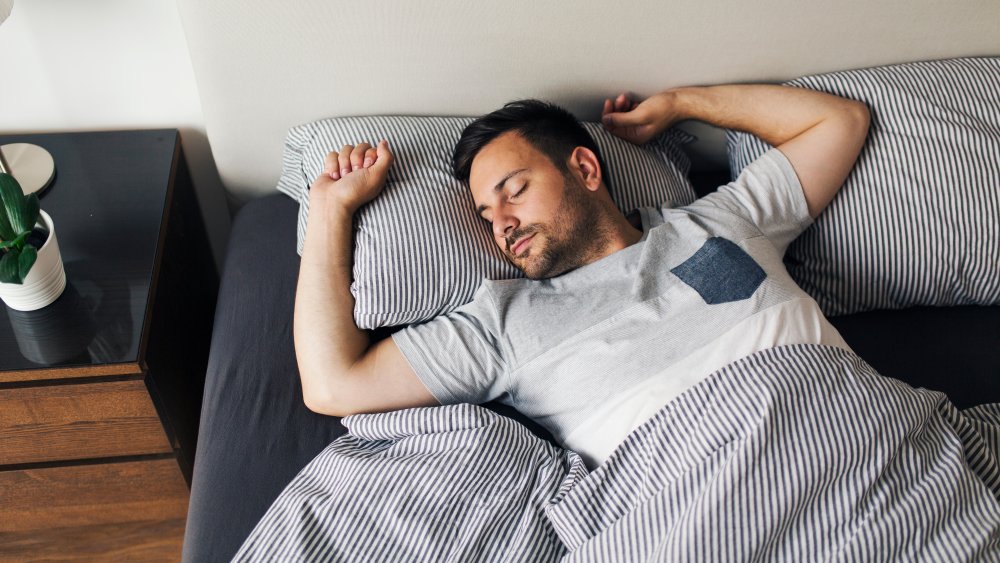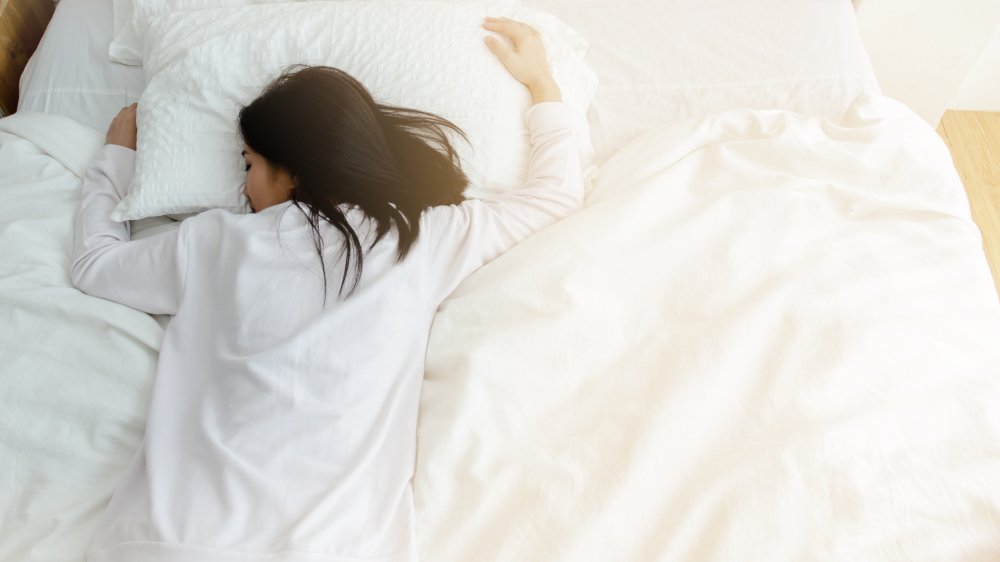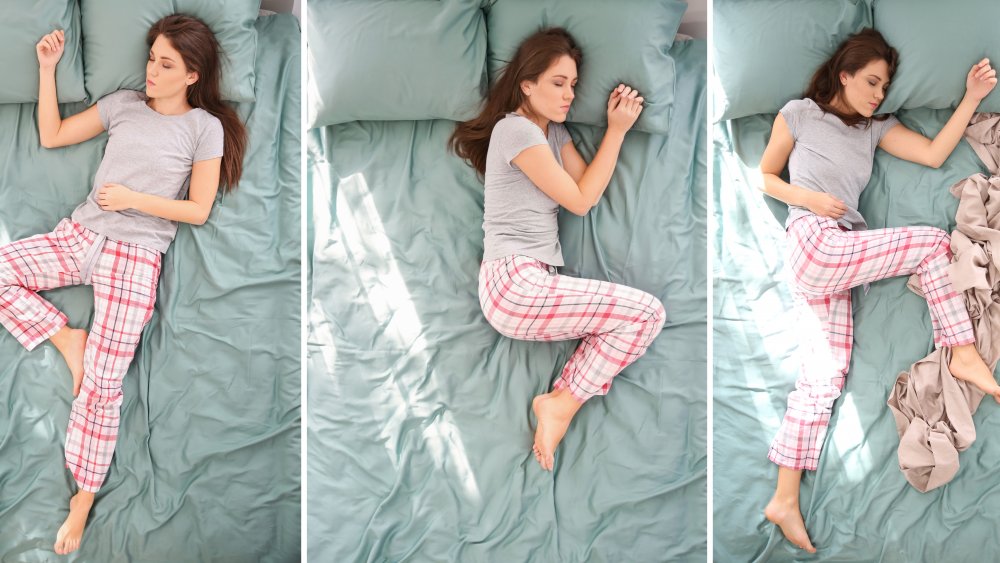What Your Sleep Position Reveals About Your Personality
If you're getting your recommended eight hours of sleep per night, then you are spending one-third of your life in bed. Does that mean that "the real you" is the one you are when you are sound asleep? Depending on how your dream life is, that could be a good or a bad thing, probably depending on what kind of night your unconscious is having.
An important part of each night's sleep is how your body locates itself while you're doing it. Whether you go to sleep with a partner or on your own, or even accompanied by a furry friend, once you're off in dreamland, your body's going to assume its own position without consulting your waking mind as to its preferences. That indicates that your sleep position may actually have quite a bit of insight to offer into what you are really like deep-down beneath all the trappings of the waking world.
If you sleep like an (unborn) baby ...
The fetal position, according to a study performed by London's Sleep Assessment and Advisory Service (via the Alaska Sleep Clinic), is the world's most popular one. About 40 percent of us sleep on our sides with our knees curled up and in towards our bodies, although twice as many women as men sleep in this position. This position tends to indicate someone who is tough on the outside but a marshmallow at heart.
Beverly Hills body language expert Lillian Glass, Ph.D., told Women's Health that sleeping in the fetal position can also be a sign of insecurity. Sleep specialist W. Christopher Winter, M.D., agrees, saying "when there's trauma you're not able to deal with, you kind of ball yourself up." Wow, sounds like a whole lot of us may have unresolved nighttime issues, go figure.
If you sleep on your side ...
Side sleeping is also quite common, with 15 percent of sleep survey participants adopting a "log" look where they lie on one side with both arms extended downwards. An additional 13 percent were "yearners," basically logs with outstretched arms. The Alaska Sleep Clinic describes log personalities as easygoing, sociable, and trusting, and maybe even a teensy bit gullible, while yearners are also fairly open, but a bit more cynical and suspicious, and with a tendency to be indecisive.
Winter tells Women's Health that side sleeping is naturally comfortable, and indicative of balance in both body and mind. He sees side sleepers as feeling in harmony with the world.
If you sleep on your back ...
Another 13 percent of survey respondents reported sleeping on their backs with their arms at their sides. Probably a good thing this number's not higher, since Reader's Digest notes that back sleeping is the position most associated with snoring. While sharing a bed with a back-sleeping snorer might not do much for your sleep hygiene, the back sleepers themselves tend to (unfairly) snooze quite soundly. The Alaska Sleep Clinic calls the arms-down back sleeping position the "soldier," and describes the eight percent who sleep soldier-style as being quiet and reserved with high standards. Back sleepers who point their arms upwards (only five percent of us) are called "starfish," and are said to be good friends, great listeners, very helpful, but not overly inclined to hog the spotlight.
Back sleepers of both types tend to be secure and confident (via Women's Health), although Winter did note that this sleeping style might also be indicative of a "be prepared" mentality. Back sleeping, after all, makes you better able to hear what is going on in the house and better prepared if you need to spring up out of bed to deal with an emergency (such as the cat knocking everything off the dresser again).
If you sleep on your stomach ...
Stomach sleepers, aka "freefallers," can be real extroverts, but also have a tendency towards being thin-skinned and averse to criticism according to the Alaska Sleep Clinic. Winter told Women's Health that stomach sleepers are private and even closed-off, since he describes the pillow face plant as a "secure sort of position ... [one that makes you] feel covered and protected, like a turtle with your shell." Glass, on the other hand, sees stomach sleepers as being "very stoic," although she doesn't actually explain why. (Perhaps because it's not so great for your airway, your neck, or your lower back, so it's a good position for people who like to wake up in pain.)
Mattress maker Sealy did a survey of its own where it dubbed these sleepers "stomach slumpers" and noted that this group tends to be the heaviest drinkers. Or could it be, perhaps, that heavy drinking leads to passing out face down? Kind of a chicken-and-egg conundrum.
If you can't seem to make up your (unconscious) mind ...
There is one final sleep position, or rather mix-and-match position combo, that Reader's Digest refers to as "freestylers." Winter thinks that changing sleeping positions multiple times during the night may be a result of inner turmoil. Or, if you're perfectly at peace with the universe, maybe it's your body that's got a problem. While mattress makers would like you to think that this is nothing one of their top-of-the-line, costs-as-much-as-a-new-car products won't cure, it may be something like restless leg syndrome or sleep apnea that is best attended to by a medical professional.
Glass points out that a restless night's sleep may also have to do with what's going on in your dream cycle – if you dream you're being chased by a bear before swimming in shark-infested waters, you're more likely to wake up in a sweat-soaked sheet snarl, no surprise there. There's also one additional factor at play, though, which is that many of us may not know our true sleep position. While you may think you're a fetal sleeper since you tend to curl up before drifting off, if you wake up on your side, you're really a log.
